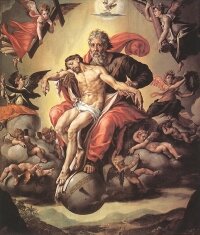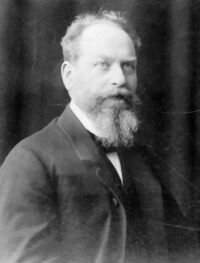
In the arts, history, archaeology, the study of antiques, and similar fields involving unique or scarce artifacts from the past, and, with regard to documents in law, authenticity (Greek: ἀρχηγός from 'archēgos'='author')
- the chief leader, prince
- one that takes the lead in any thing and thus affords an example, a predecessor in a matter, pioneer
- the author
Strong's Number: 747 Greek: archegosAuthor: translated "Prince" in Act 3:15 (marg., "Author") and Acts 5:31, but "Author" in Hebrews 2:10, RV, "Captain," RV marg., and AV, and "Author" in Hebrews 12:2, primarily signifies "one who takes a lead in, or provides the first occasion of,anything." In the Septuagint it is used of the chief of a tribe or family, Numbers 13:2 (RV, prince); of the "heads" of the children of Israel, Numbers 13:3; a captain of the whole people, Numbers 14:4; in Micah 1:13, of Lachish as the leader of the sin of the daughter of Sion: there, as in Hebrews 2:10, the word suggest a combination of the meaning of leader with that of the source from whence a thing proceeds. That Christ is the Prince of life signifies, as Chrysostom says, that "the life He had was not from another; the Prince or Author of life must be He who has life from Himself." But the word does not necessarily combine the idea of the source or originating cause with that of leader. In Hebrews 12:2 where Christ is called the "Author and Perfecter of faith," He is represented as the one who takes precedence in faith and is thus the perfect Exemplar of it. The pronoun "our" does not correspond to anything in the original, and may well be omitted. Christ in the days of His flesh trod never deviating the path of faith, and as the Perfecter has brought it to a perfect end in His own person. Thus He is the leader of all others who tread that path.
Note:In Acts 28:16 some mss. have the word stratopedarches (lit., "camp-commander"), which some take to denote a praetorian prefect, or commander of the praetorian cohorts, the Emperor's bodyguard, "the captain of the praetorian guard." There were two praetorian prefects, to whose custody prisoners sent bound to the Emperor were consigned. But the word probably means the commander of a detached corps connected with the commissariat and the general custody of prisoners.
Prince:primarily an adjective signifying "originating, beginning," is used as a noun, denoting "a founder, author, prince or leader," Acts 3:15, "Prince" (marg., "Author"); Acts 5:31
People in the postmodern culture seek real and authentic experiences in preference over scripted or superficial experiences. Emerging churches strive to be "relevant" to today's culture and daily life, whether it be through worship or service opportunities. The core Christian message is unchanged but emerging churches attempt, as the church has throughout the centuries, to find ways to reach God's people where they are to hear God's message of unconditional love.
More...
 In physics and cosmology, the anthropic principle is an umbrella term for various dissimilar attempts to explain the structure of the universe by way of coincidentally balanced features that are necessary and relevant to the existence on Earth of biochemistry, carbon-based life, and eventually human beings to observe such a universe. The common (and "weak") form of the anthropic principle is a truism or tautology that begins with the observation that the universe appears surprisingly hospitable to the emergence of life, particularly complex multicellular life, that can make such an observation and concludes with that premise that in only such a fine-tuned universe can such living observers be.
In physics and cosmology, the anthropic principle is an umbrella term for various dissimilar attempts to explain the structure of the universe by way of coincidentally balanced features that are necessary and relevant to the existence on Earth of biochemistry, carbon-based life, and eventually human beings to observe such a universe. The common (and "weak") form of the anthropic principle is a truism or tautology that begins with the observation that the universe appears surprisingly hospitable to the emergence of life, particularly complex multicellular life, that can make such an observation and concludes with that premise that in only such a fine-tuned universe can such living observers be.








 An abortion is the removal or expulsion from the uterus of an embryo or fetus, resulting in or caused by its death. This can occur spontaneously as a miscarriage, or be artificially induced through chemical, surgical or other means.
An abortion is the removal or expulsion from the uterus of an embryo or fetus, resulting in or caused by its death. This can occur spontaneously as a miscarriage, or be artificially induced through chemical, surgical or other means.



















